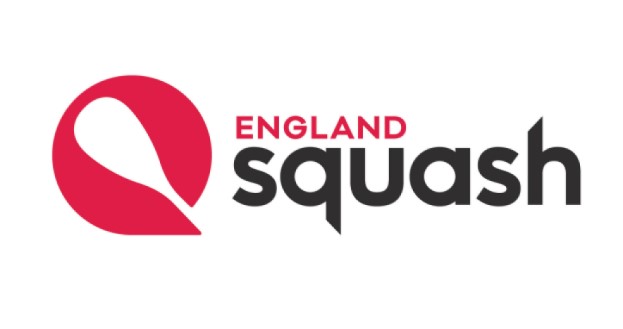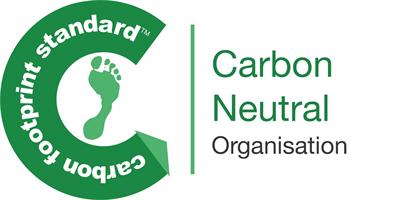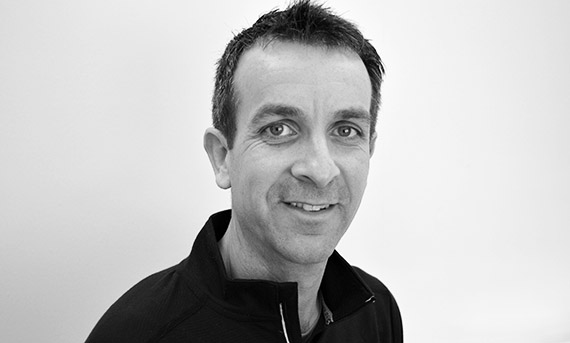Anti-doping in squash

All athletes have the right to compete in sport knowing that they, and their competitors, are clean. We believe in clean sport and work in partnership with UK Anti-Doping (UKAD) and our International Federation (The World Squash Federation) to ensure that the integrity of our sport is protected.
Our Clean Sport Commitment
England Squash is a committed advocate of clean sport.
Read our clean sport commitment statement.
Read an overview of our education activity during 2020/2021.
In May 2022, England Squash completed the UK Anti-Doping Assurance Framework.
Anti-Doping Rules
England Squash has in place a set of anti-doping rules that all athletes and athlete support personnel must abide by. The anti-doping rules for England Squash are consistent with the World Anti-Doping Code (the Code), the core document that harmonises anti-doping policies, rules and regulations within sport globally.
- The anti-doping rules of England Squash are the rules published by UK Anti-Doping (or its successor), as amended from time to time.
- The anti-doping rules of England Squash are available here Anti-Doping Rules.
If you are a member of England Squash then the anti-doping rules apply to you, regardless of what level you participate at. You can find the UK Anti-Doping Rules here and our education implementation plan here
2022 World Anti-Doping Code
From 1 January 2022, a new version of the Code is in effect and it’s important that all athletes and athlete support personnel are aware of how this impacts them.
For more information on the changes within the 2022 Code, visit UKAD’s website here.
Under the 2022 Code, an athlete may be classified as being “International-Level”, “National-Level” or a “Recreational Athlete” based on their competition level. Further information on these different categories is available on the UKAD website.
Breaking the anti-doping rules can result in a ban from all sport. The Code outlines the Anti-Doping Rule Violations (ADRVs). Athletes and athlete support personnel need to make sure they are fully aware of these violations, and the consequences of breaking them. For more information and what this means for those individuals, click here.
For information on individuals serving a ban from sport, visit UKAD’s sanction page on their website.
An athlete is responsible for anything found in their system, regardless of how it got there or whether there is any intention to cheat. All athletes and athlete support personnel should make themselves aware of the risks, so they don’t receive an unintentional ban from sport. Useful information for athletes can be found on the UKAD website.
The Prohibited List
All banned substances and methods in Code-compliant sports are outlined in the Prohibited List. Substances and methods can be added to the Prohibited List at any time; however, it is updated as a minimum once a year, coming into effect on 1 January. The latest Prohibited List can be found on the WADA website. As this list is updated frequently, athletes and athlete support personnel should make sure they check it regularly for any changes. More information can be found on UKAD’s website here.
Checking Medications
Before taking any medication (whether from a doctor or purchased over the counter), athletes must check to make sure it doesn’t contain any banned substances. Medications (ingredients or brand name) can be checked online at Global DRO. It is important to note that medications bought in one country may contain different ingredients to the same branded medication in another country. For more information on checking medications, visit UKAD’s website here.
Check out the video below from UKAD’s Athlete Commission member and British Paralympic Powerlifter, Ali Jawad, on using Global DRO.
Taking Nutritional Supplements
UKAD always advises a food first approach to nutrition, as there are no guarantees that any supplement product is free from banned substances. Athletes can support their training and progress towards their targets by eating and enjoying nutritious food. With a bit of planning, it is possible to eat a delicious and healthy diet made up of a variety of food types at the right time, and in the right quantities.
Athletes should assess the need, the risks and the consequences before deciding to take a supplement, and if they need to use one, visit the Informed Sport website to check whether supplements have been batch-tested. More advice on managing supplement risks can be found on UKAD’s Supplement Hub here.
Applying for a Therapeutic Use Exemption (TUE)
If an athlete with a legitimate medical condition needs to use a prohibited substance or method, they will need to apply for a Therapeutic Use Exemption (TUE). This is only accepted if there are no other suitable permitted medications or treatments that can be used, and there is a strict, detailed process to determine this. Athletes can find out more information about the TUE process on the UKAD website here and use the TUE Wizard to find out whether they need to apply for a TUE and who to submit their application to.
What happens in a test?
Athletes should feel prepared and know their rights and responsibilities when they are notified to be tested by a Chaperone or Doping Control Officer. Watch this video on the testing process from start to finish.
Athletes can find out more in the Introduction to Testing section of UKAD’s website.
100% me – Supporting athletes to be clean
100% me is UKAD’s values-based education and information programme, helping athletes meet their anti-doping responsibilities throughout their sporting journey. We want all athletes to be clean, stay clean and believe all others are clean.
For more information on what this means, visit UKAD’s website here. UKAD’s 100% me Clean Sport App can also be downloaded from iTunes, Google Play or Windows Live Store, for essential anti-doping information.
Protect Your Sport
Protecting clean sport depends on everyone playing their part - athletes, coaches, or parents - whether on centre stage or behind the scenes. Speak out if you feel there’s something wrong - no matter how small. UKAD guarantee that your identity will always be kept 100% confidential. Find out more about Protect Your Sport here.
There are four ways to contact if you want to speak out:
- Email - When you feel something’s wrong, send UKAD an email. UKAD guarantee that your name and email address will be kept confidential. Email at protectyoursport@reportdoping.com
- WhatsApp - Message on WhatsApp* at +44 (0) 7587 634711 - no matter how small. UKAD guarantee that your name and number will be kept confidential.
- Online Form - Let UKAD know via the form on protectyoursport.co.uk. Choose the two-way communication option at the end of the form. You will still be anonymous, but UKAD will have the chance to follow up later on. Fill in the form here
- 24/7 Hotline - Call on 08000 32 23 32. UKAD is here to listen and won’t ask who you are. You may want to keep your identity a secret but telling UKAD who you are makes a real difference later on, so consider emailing or speaking via WhatsApp first.
*WhatsApp is an encrypted platform. This number is not open to receiving calls.
For further information
Please do not hesitate to ask questions about the anti-doping rules. As well as asking England Squash and athlete support personnel, athletes may also contact UKAD directly, who will be able to answer any questions and provide guidance. They can be contacted at ukad@ukad.org.uk or 0207 842 3450.
Regular updates from UKAD can also be found in the news section of their website, or on their Twitter account: @ukantidoping
Anti-doping rules
England Squash has in place a set of anti-doping rules that all athletes, coaches and athlete support personnel must abide by. The anti-doping rules for England Squash are consistent with the World Anti-Doping Code (2021 Code), which governs anti-doping internationally.
You can find the UK Anti-Doping Rules here.
- The anti-doping rules of England Squash are the UK Anti-Doping Rules published by UK Anti-Doping (or its successor), as amended from time to time. Such rules shall take effect and be construed as the rules of England Squash.
- The anti-doping rules of England Squash are applicable to all members. Updated rules shall take effect from January 1st each year, in line with the current Code.
If you are a member of England Squash then the anti-doping rules apply to you, regardless of what level you participate at.
Anti-doping: the big picture
There are many organisations that work hard to protect sport. The World Anti-Doping Agency (WADA) is responsible for leading the collaborative world-wide campaign for clean sport. Established in 1999 as an independent agency and funded by both sport and governments, it manages the development of the World Anti-Doping Code. The Code aims to harmonise all anti-doping policies ensuring that athletes and athlete support personnel are treated fairly and consistently.
The aims of the 2021 Code and WADA are to:
- protect the Athletes’ fundamental right to participate in doping-free sport and thus promote health, fairness and equality for Athletes worldwide, and
- ensure harmonised, coordinated and effective anti-doping programmes at the international and national level with regard to detection, deterrence and prevention of doping
In the UK, England Squash works in partnership with UK Anti-Doping (UKAD) to prevent doping.
UKAD is the national anti-doping agency for the UK, dedicated to protecting a culture of clean sport – it achieves this through implementing education and testing programmes, gathering and developing intelligence, and prosecuting those found to have committed an Anti-Doping Rule Violation.
UKAD is responsible for ensuring sports bodies in the UK are compliant with the World Anti-Doping Code through the implementation and management of the UK’s National Anti-Doping Policy.
100% me – supporting athletes to be clean
100% me is UK Anti-Doping’s education programme for athletes – designed to provide information resources, education sessions and general advice to athletes throughout their sporting careers.
The 100% me Clean Sport App has all the information you need, helping you make the right decisions on the go.
The app provides clear and concise anti-doping advice, guidance and updates to ensure you can be clean and stay clean wherever you are training or competing. If you need to check your medication, learn more about the risks with supplements, or simply understand more about the testing procedures and your rights as an athlete, the app is the place to start.
The 100% me Clean Sport App is available on either iOS or Android and can be downloaded for free via iTunes or Google Play.
What is strict liability?
All athletes need to be aware of the principle of strict liability. This means that all athletes are solely responsible for any banned substance they use, attempt to use, or that is found in their system, regardless of how it got there and whether or not they had an intention to cheat.
It is crucial that athletes check all medications are safe to take prior to use. Medications can be checked online via Global DRO.
Athletes must undertake thorough internet research of any supplement products before use – including the name of the product and the ingredients/substances listed. Information revealed as a result should be further investigated and we advise athletes to keep evidence of their search.
What are the Anti-Doping Rule Violations (ADRVs)?
The 2021 Code outlines eleven Anti-Doping Rule Violations (ADRVs). Athletes, and Athlete Support Personnel (ASP), may receive a ban from sport if any of the ADRVs are committed: Click here for an outline of the eleven ADRV's.
Consequences are significant
Under the 2021 Code, a minimum four-year ban from sport will apply to those who are found to be deliberately cheating and breaking the rules.
The 2021 Code has little sympathy for carelessness – for inadvertent doping, athletes are more likely to face a two-year ban from sport.
All athletes, coaches and athlete support personnel need to make sure they have sufficient anti-doping knowledge to avoid committing an ADRV and receiving a ban from sport.
Managing inadvertent doping risks
The prohibited list
All banned substances and methods in Code-compliant sports are outlined in the Prohibited List, which is updated at the beginning of every calendar year, but may also be updated throughout the year. The latest Prohibited List can be found on the WADA website.
Understand the importance of checking medications
Before taking any medication (whether from a doctor or bought over the counter) athletes must check to make sure it does not contain any banned substances. Medications can be checked online at Global DRO. It is important to note that medications bought in one country may contain different ingredients to the same branded medication in another country.
Know the risks with nutritional supplements
Athletes are strongly advised to be very cautious if they choose to take any supplement such as vitamin tablets, energy drinks, or sport-nutrition formulas. This is because there is no guarantee that any supplement is free from banned substances.
All athletes are advised to:
- assess the need to use supplements by seeking advice from a medical professional or nutritionist on their need to use supplement products
- assess the risks associated with supplements and undertake thorough research of all supplement products they are considering taking
- assess the consequences to their careers – they could receive a four-year ban before making a decision to use supplements.
However, supplement risks can be reduced by:
- undertaking thorough internet research
- only using batch-tested products
- checking on Informed-Sport (which is a risk minimisation programme) that the supplement has been batch tested
Visit the UKAD website for further information including information on the Informed Sport programme, which provides a batch-testing service for supplement products.
Apply for a Therapeutic Use Exemption (TUE)
Athletes can obtain approval to use a prescribed banned substance or method for the treatment of a legitimate medical condition by applying for a TUE. They must be able to provide medical evidence to confirm their diagnosis and prescription, and reference that there are no reasonable alternative medications.
- International-level athletes (as defined by their International Federation) need to apply to their International Federation for a TUE
- Athletes competing at National level need to apply to UKAD for a TUE
TUEs approved by UKAD, unless stated otherwise, are valid at national level only. If an athlete is competing at international events, a UKAD TUE will not be valid unless it is first recognized by the relevant International Federation or Major Event Organisation. Athletes should notify the relevant body of this as soon as possible prior to competing.
Athletes listed under the ‘National’ category for their sport must apply for their TUE in advance. The ‘National’ category for TUEs is defined by UKAD by sport and can be found on UKAD’s website here. Only in an emergency situation or where there will be a severe impact on health should treatment begin without the necessary approval. Athletes not listed in the ‘National’ category would only need to apply for a TUE retroactively should they be tested and their sample return an Adverse Analytical Finding (AAF).
You can find out more about whether you need a TUE and how to apply for one (including emergency TUEs) on the UKAD website here.
Understand what happens in a test (doping control)
Athletes should feel prepared and know their rights and responsibilities when they are notified to be tested by a Chaperone or Doping Control Officer. When selected for testing, athletes should take a representative with them to the Doping Control Station.
A urine test will follow these main steps:
- Notification
- Reporting to Doping Control Station
- Providing a sample
- Recording and certifying sample information
UK Anti-Doping recommends that athletes follow their normal hydration routines if selected for testing.
Athletes need to be prepared to provide details of any substances they have taken – this needs to be written on the Doping Control form. Athletes should report any concerns they have about the process or the equipment on the Doping Control form.
Athletes can find out more about testing, including their rights and responsibilities, in the Athlete Zone or by downloading the Clean Sport App from their app store.
Know where to look for support and advice
Please do not hesitate to ask questions about the anti-doping rules. As well as asking England Squash coaches and athlete support personnel, you may also contact UKAD directly, who will be able to answer any questions and provide guidance.
Help keep sport clean
We all have a responsibility to report doping in sport and help keep it clean. A 24-hour dedicated phone line, hosted by Crimestoppers, is ready to take your call if you have any suspicions or concerns about incidences of doping in sport. You can provide information in complete confidence by calling 08000 32 23 32 or via a secure website. All information is passed securely to UKAD’s intelligence unit for investigation. https://www.ukad.org.uk/our-organisation/what-we-d...
Useful links and resources
100% me - elite athlete clean sport app for smartphones
For essential anti-doping information download the Clean Sport App from iTunes or Google Play – the sport specific or the generic version.
Check your medications on Global DRO
Remember to check all medications on Global DRO, where you can search by ingredients or brand name.
Assess the risk of supplements on informed sport
You can find information on supplements and ways of reducing the risks on Informed Sport.
Register with UK Anti-Doping
Visit UKAD’s website and register to keep up to date with the latest news.
For more information from UKAD:
- Visit www.100percentme.co.uk If you’re an athlete
- Visit www.ukad.org.uk/coaches If you’re a coach
- Visit www.ukad.org.uk/support-personnel If you’re athlete support personnel
- Visit www.ukad.org.uk/parents if you’re a parent
Keep up to date with the latest news on www.facebook.com/100percentme.uk or www.facebook.com/ukantidoping
Have your say on Twitter @UKAntiDoping.
For further information please contact UKAD at ukad@ukad.org.uk or +44 (0) 207 842 3450.













 Back
Back


























